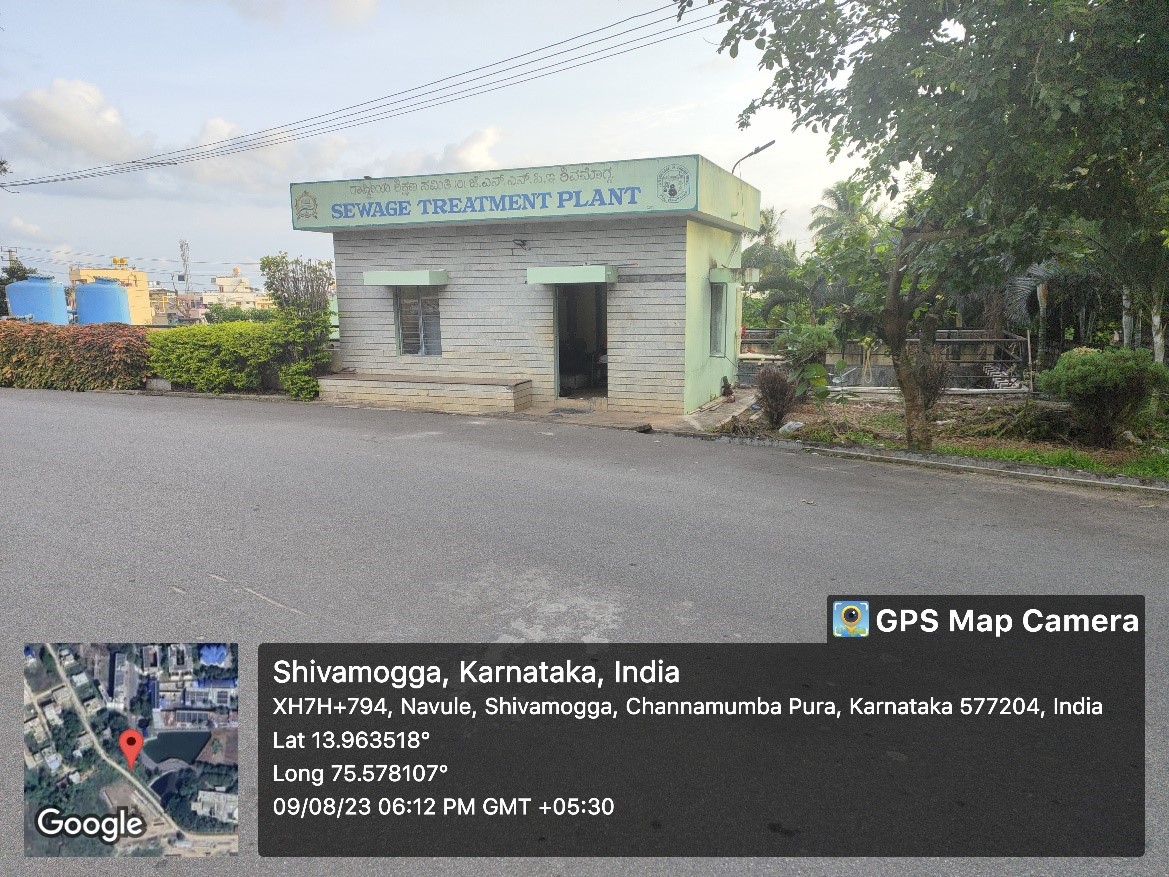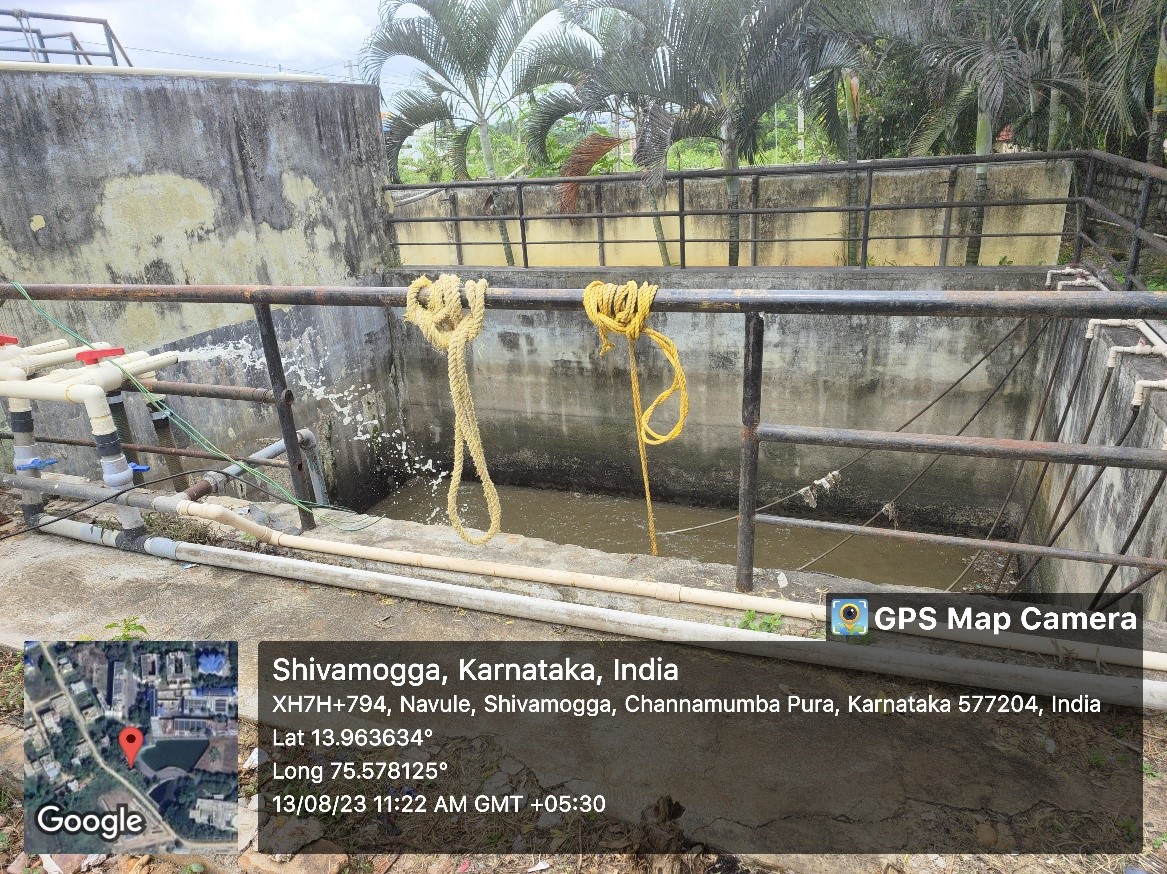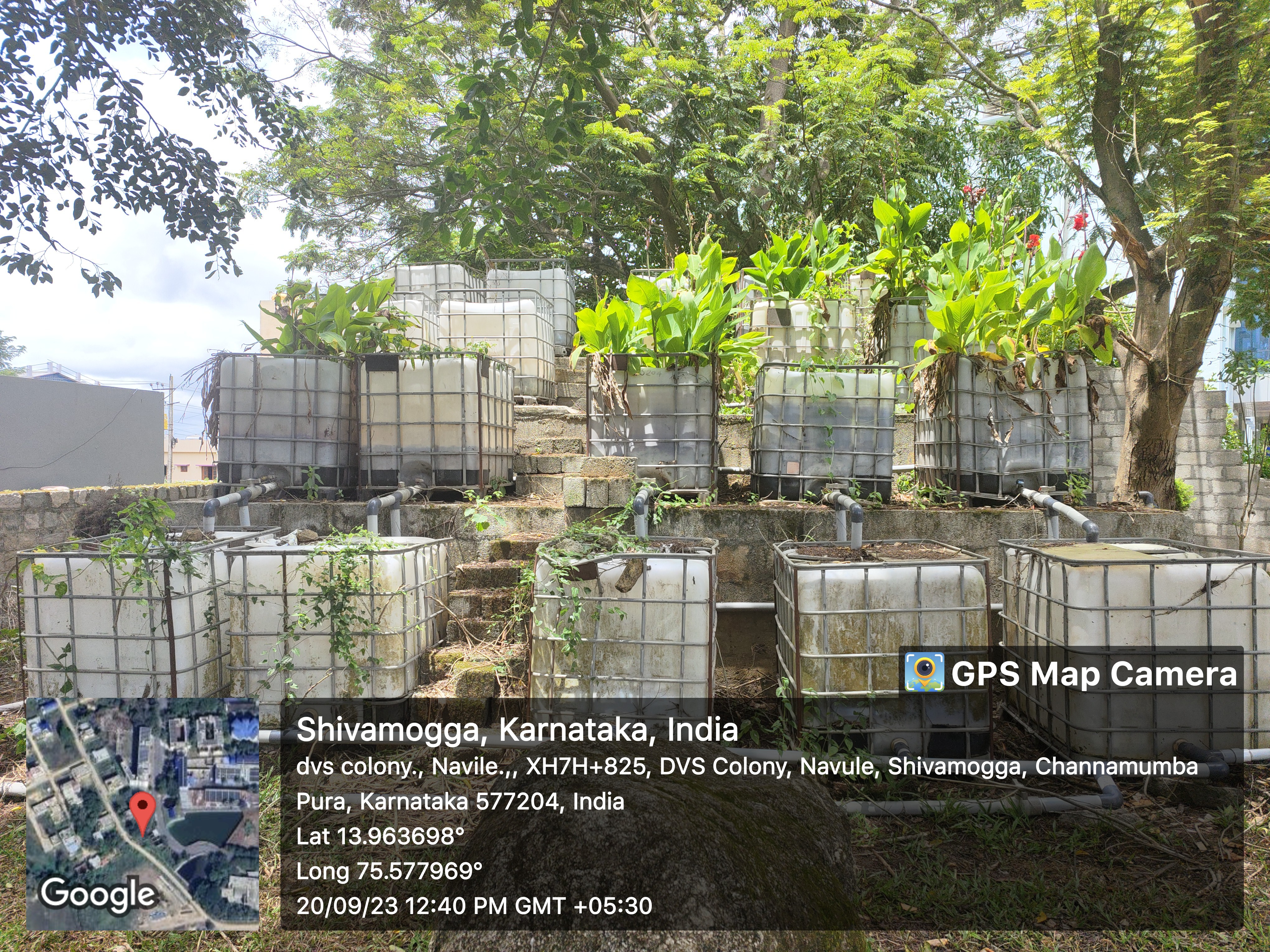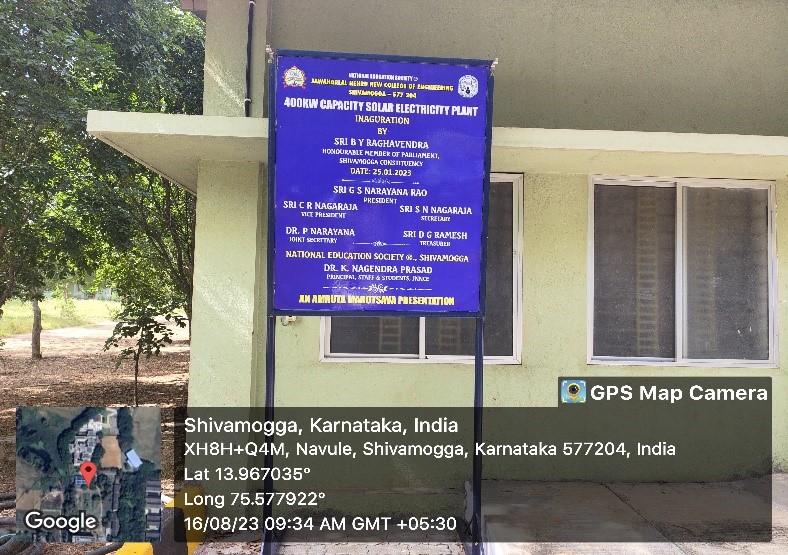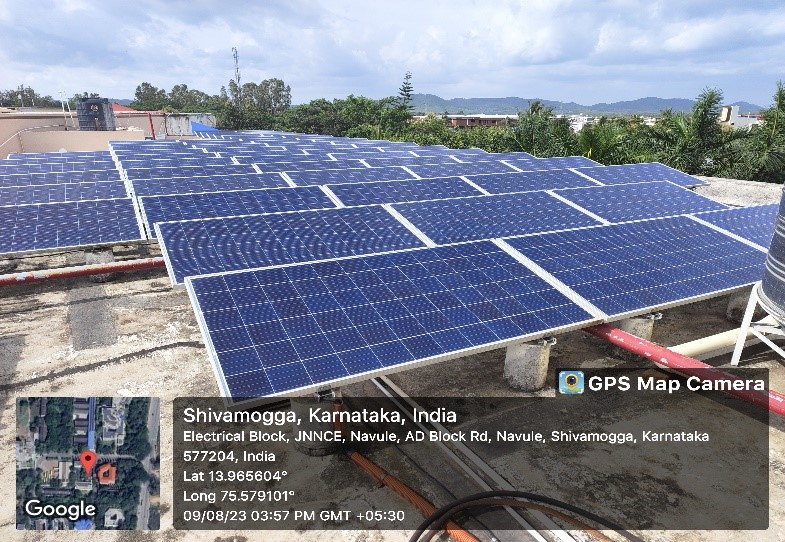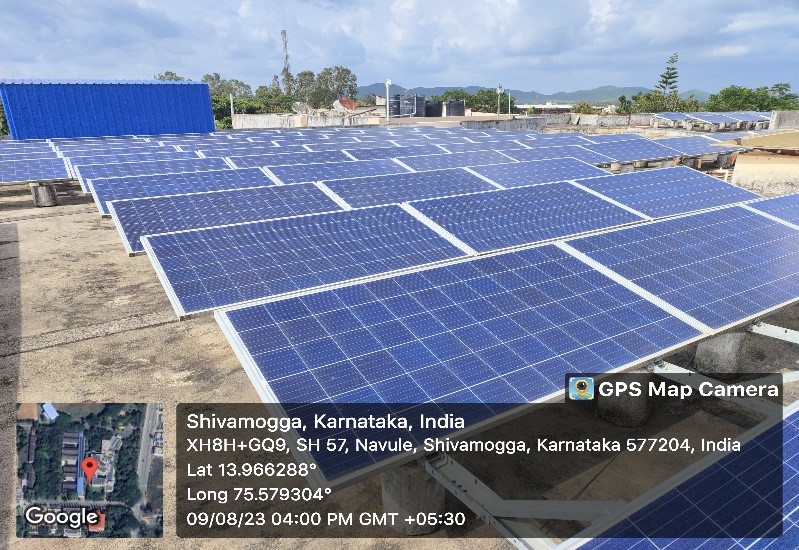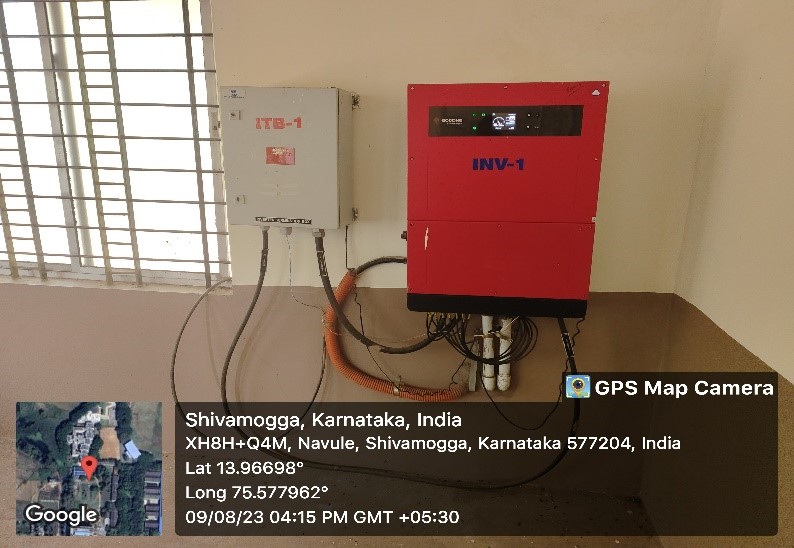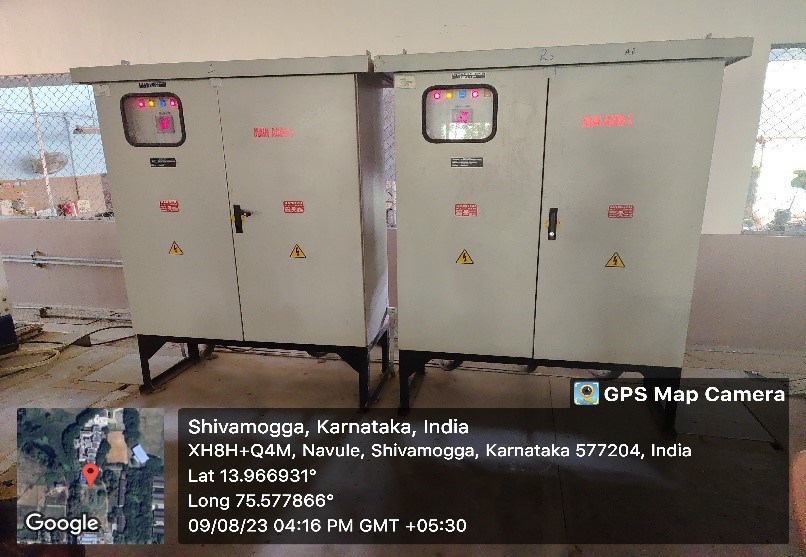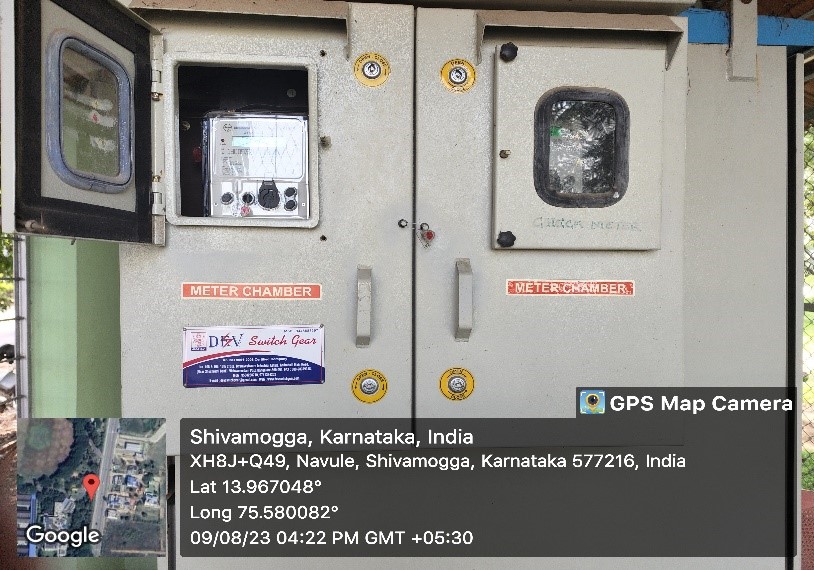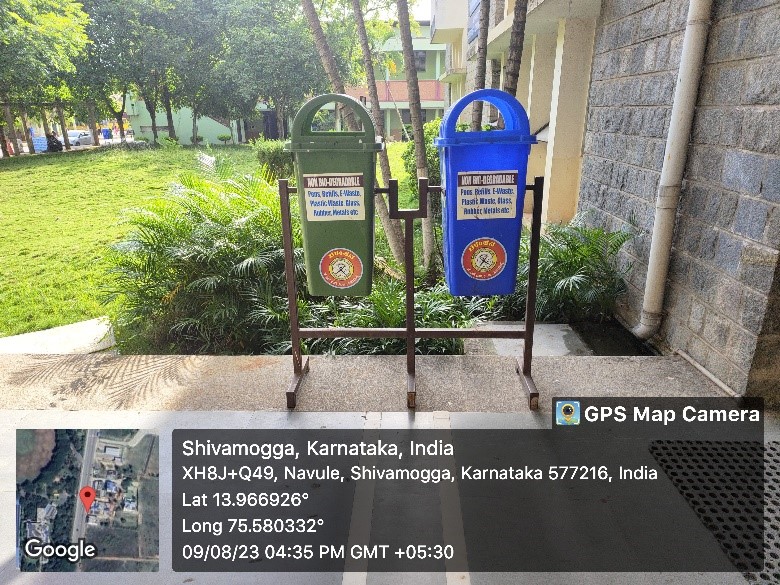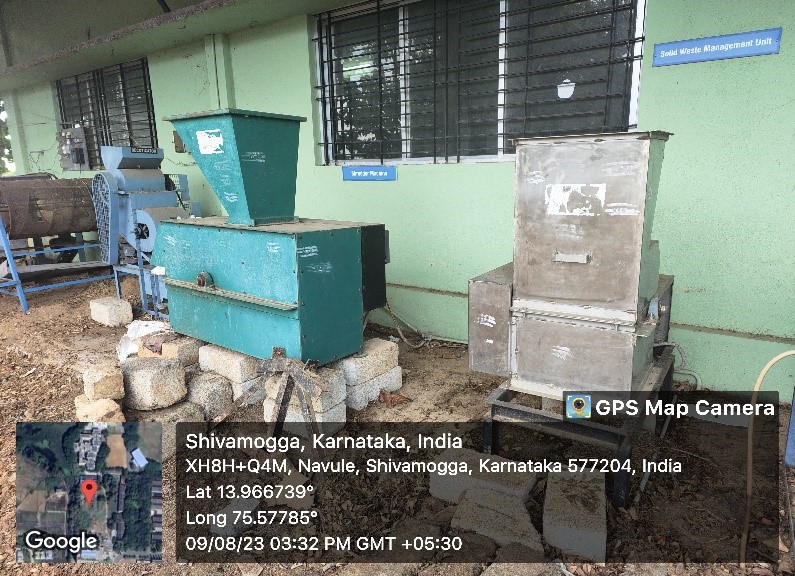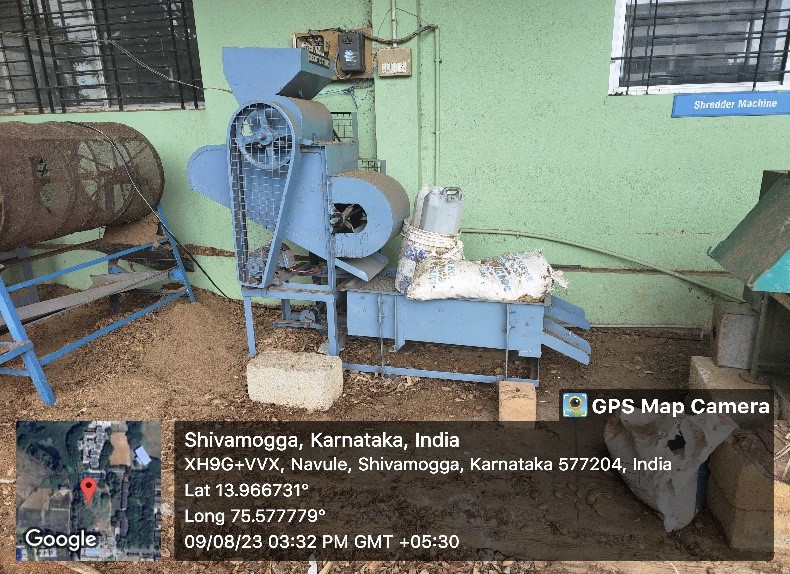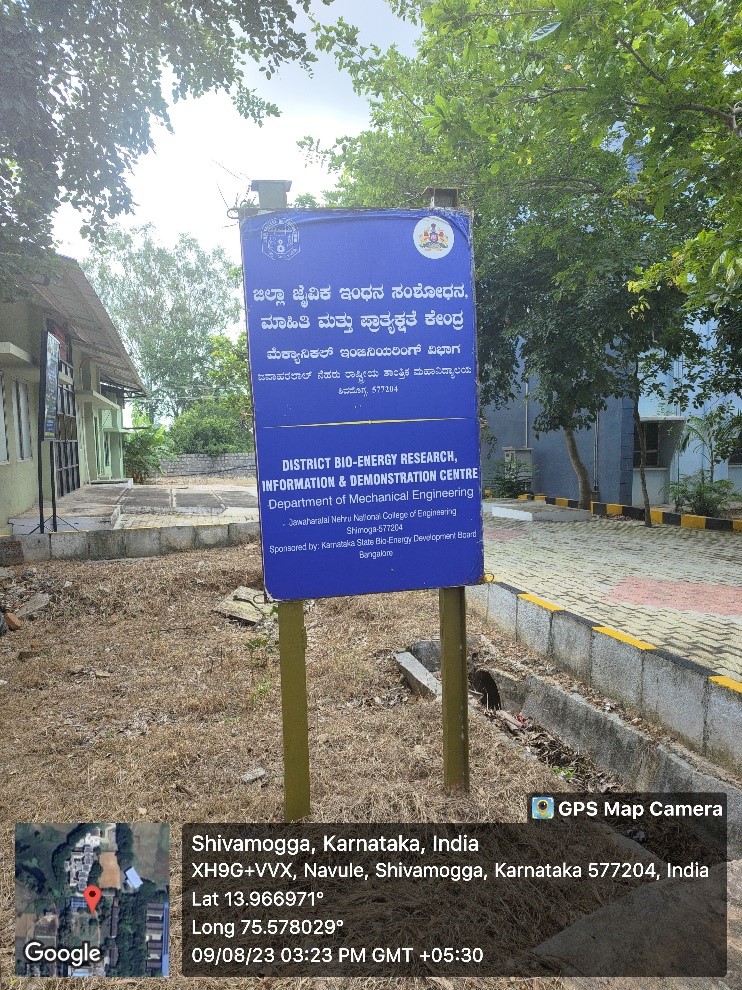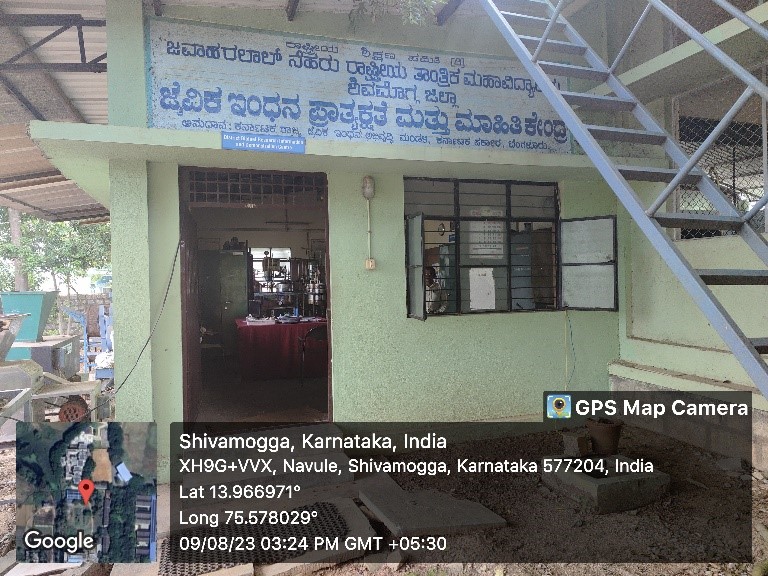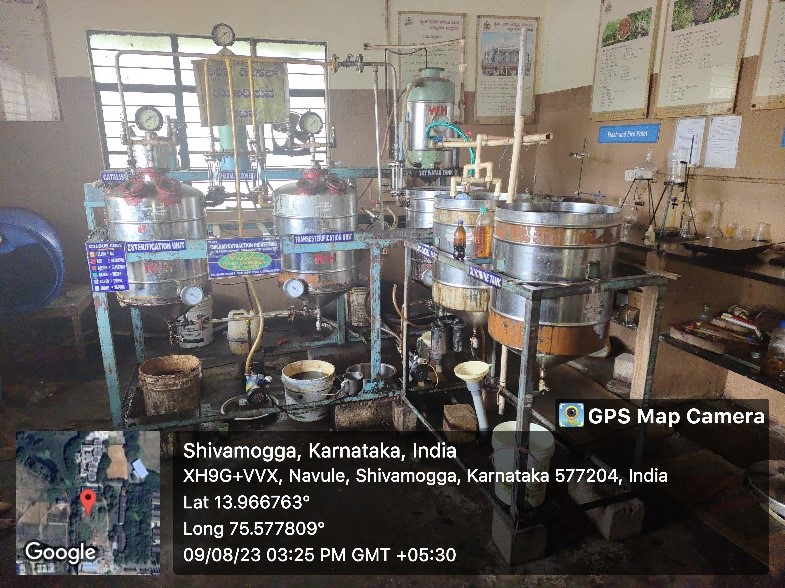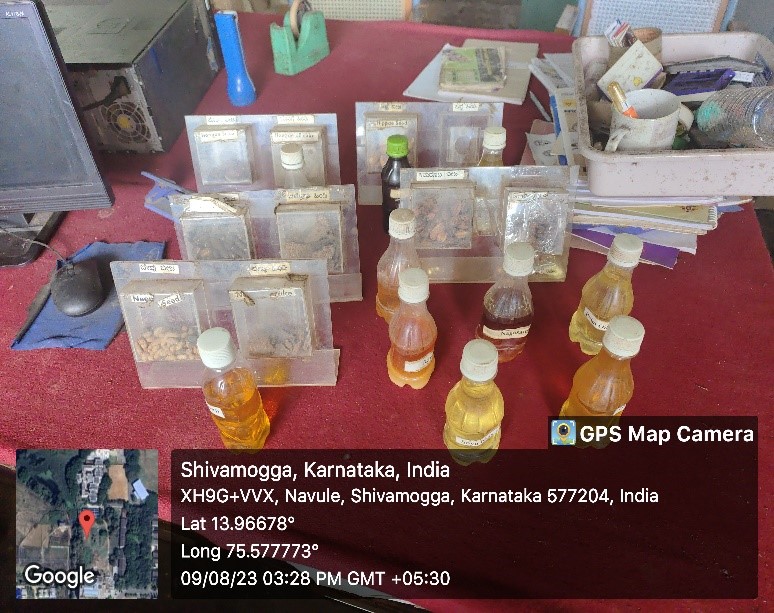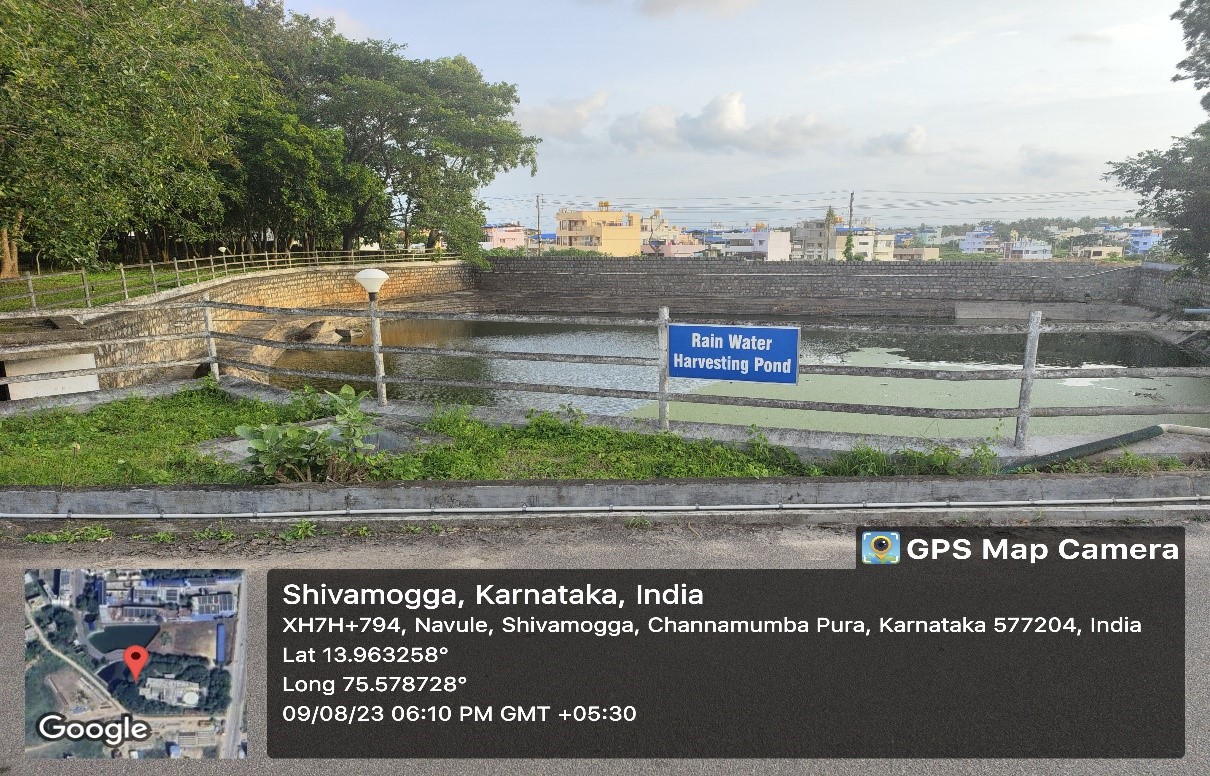
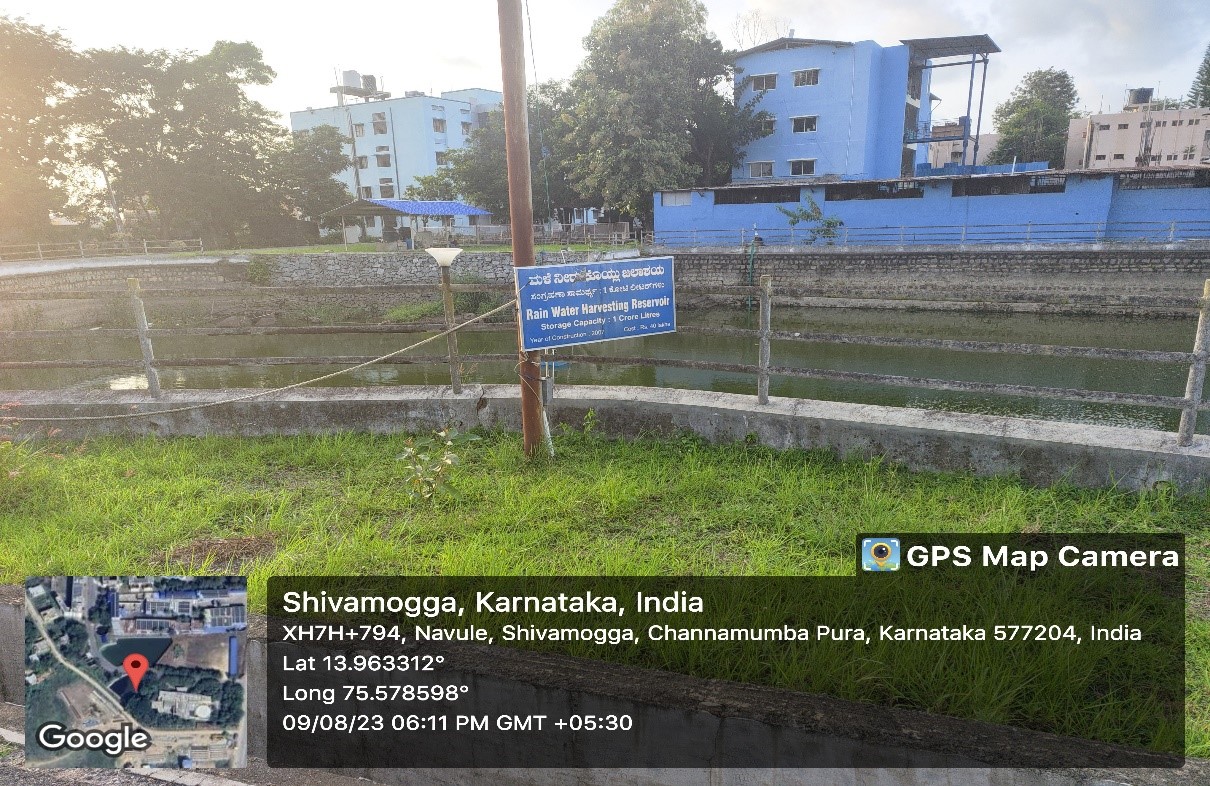
Rain water harvesting is the gathering or accumulating and storing of rain water. Rain water can be used for drinking, irrigation and for ground water recharge purpose. Rain water can be collected from roofs, sloppy ground, roads, etc.., rainwater coming from roof tops are in good quality compared to others.
The rain water from all the buildings in the campus is collected in a huge reservoir constructed which has a capacity of 10 million liters. The annual collection of water is around 6 million liters. The water collected in the reservoir is treated using indigenously developed water treatment system and supplied for in house consumption for other than drinking & cooking purposes.


